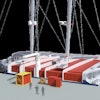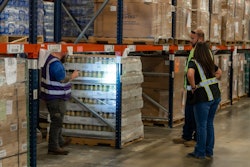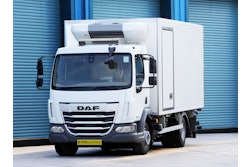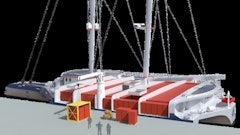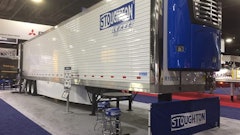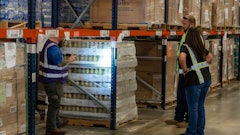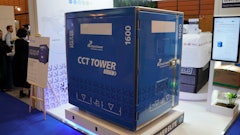
In an environment where the supply chain is more complex and scrutinized than ever, managing temperature-sensitive freight has become a mission-critical function across industries. From food and beverage to pharmaceuticals, the cold chain is no longer just about refrigerated trucks — it’s about precision, timing, visibility and a flexible infrastructure that can absorb shock without compromising quality.
As global networks face continued disruptions — from weather and geopolitical instability to fluctuating consumer demand — companies are seeking more than a transportation provider. They need a partner who offers dedicated cold chain solutions built to navigate these challenges head-on.
The cold chain is becoming colder — and hotter
The global cold chain logistics market is expected to grow significantly in the coming years, driven by increasing demand for perishable food, strict government regulations around food safety and growth in pharmaceutical and biotechnology sectors. But with this growth comes new complexity.
Whether it's proteins requiring sub-zero transit, fresh produce with strict humidity requirements or biologics sensitive to minor temperature fluctuations, shippers must now account for narrow margins of error. Any deviation from the required environment — whether in a rural distribution hub or at the border — can compromise an entire shipment.
What today’s cold chain ecosystem demands is not simply a refrigerated trailer, but a fully integrated, end-to-end solution with people, processes and platforms designed to maintain integrity and deliver results — no matter what.
Technology is the enabler — not the solution
Visibility is often cited as a cure-all for cold chain risk. While temperature-monitoring sensors and GPS-enabled tracking have become table stakes, the real differentiator lies in how data is interpreted and acted upon. Smart routing decisions, proactive exception management and real-time communication can only occur when supported by a dedicated operational framework.
That’s where dedicated solutions step in. Rather than relying on fragmented capacity or generalized freight networks, a dedicated cold chain approach is designed around the unique rhythms of each customer’s business. This includes synchronized ordering cycles, flexible pickup and delivery windows and the ability to scale with seasonal surges or market swings.
Why dedicated makes the difference
In volatile environments, consistency is king. Dedicated cold chain solutions offer a range of benefits for shippers looking to minimize risk and maximize reliability:
· Controlled capacity: Dedicated equipment and driver teams mean temperature-controlled trailers are available when and where they’re needed, reducing exposure to market rate volatility or availability shortages.
· Specialized knowledge: Teams focused solely on temperature-sensitive freight bring a deep understanding of requirements, from USDA guidelines to cross-border compliance.
· Tailored processes: Dedicated operations enable customization — from direct store delivery to multi-drop routing — based on the specific needs of each supply chain.
· Improved service metrics: With a consistent carrier base and enhanced visibility, shippers see better on-time performance, fewer claims and more predictability.
Border complexities and the rise of binational expertise
As North American trade continues to expand — particularly with fresh produce and manufacturing materials flowing between the United States and Mexico — the cold chain must now extend seamlessly across borders. This calls for binational expertise, robust cross-dock infrastructure and a thorough understanding of customs procedures.
The integration of U.S. and Mexican operations is not just a logistics benefit — it’s a competitive advantage. Shippers can consolidate loads, streamline inspections and ensure product integrity with fewer handoffs, all while meeting the demanding timelines of cross-border commerce.
Resiliency through flexibility
Cold chains are uniquely vulnerable to spikes in demand, from holiday food shipments to emergency vaccine deliveries. The ability to flex operations in response to market demands — without sacrificing product integrity — is a hallmark of a well-run, dedicated solution.
This includes access to surge and overflow capacity, protect-from-freeze services during the winter months and rapid deployment of assets in response to extreme weather or supply shocks.
A customer-centric model for long-term success
The complexity of cold chain logistics cannot be solved with a one-size-fits-all model. Shippers today need more than a transactional service — they need a consultative partnership.
Dedicated cold chain providers should operate as an extension of the customer’s team, co-creating transportation strategies that align with broader business goals. This includes:
· Developing just-in-time delivery strategies that align with production schedules.
· Offering seasonal planning that accounts for grower-to-market cycles.
· Providing continuous improvement and cost-to-serve analyses.
The goal is to not only deliver perishable goods safely but to help shippers grow, scale and compete more effectively in their markets.
Looking ahead
As regulatory standards tighten and consumer expectations continue to rise, the cold chain’s role in the global supply network will only increase in importance. Shippers must think beyond the trailer door to build resilient, customer-focused logistics solutions that are equipped for the realities of a disrupted world.
Dedicated cold chain solutions — when designed around the unique needs of the customer — offer a powerful tool for navigating this complexity with confidence.
In cold chain logistics, precision is everything. And in a supply chain landscape marked by uncertainty, dedication makes all the difference.


